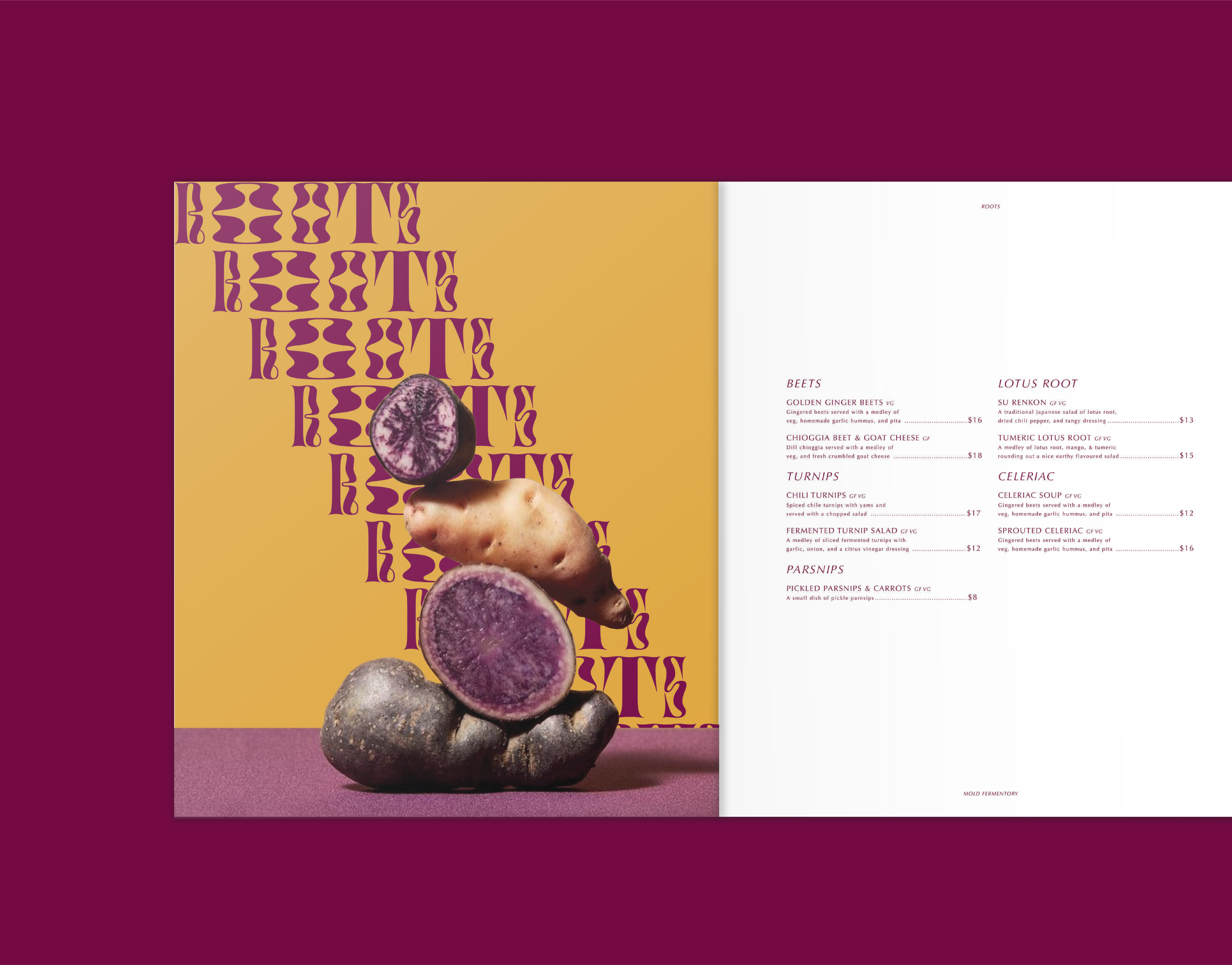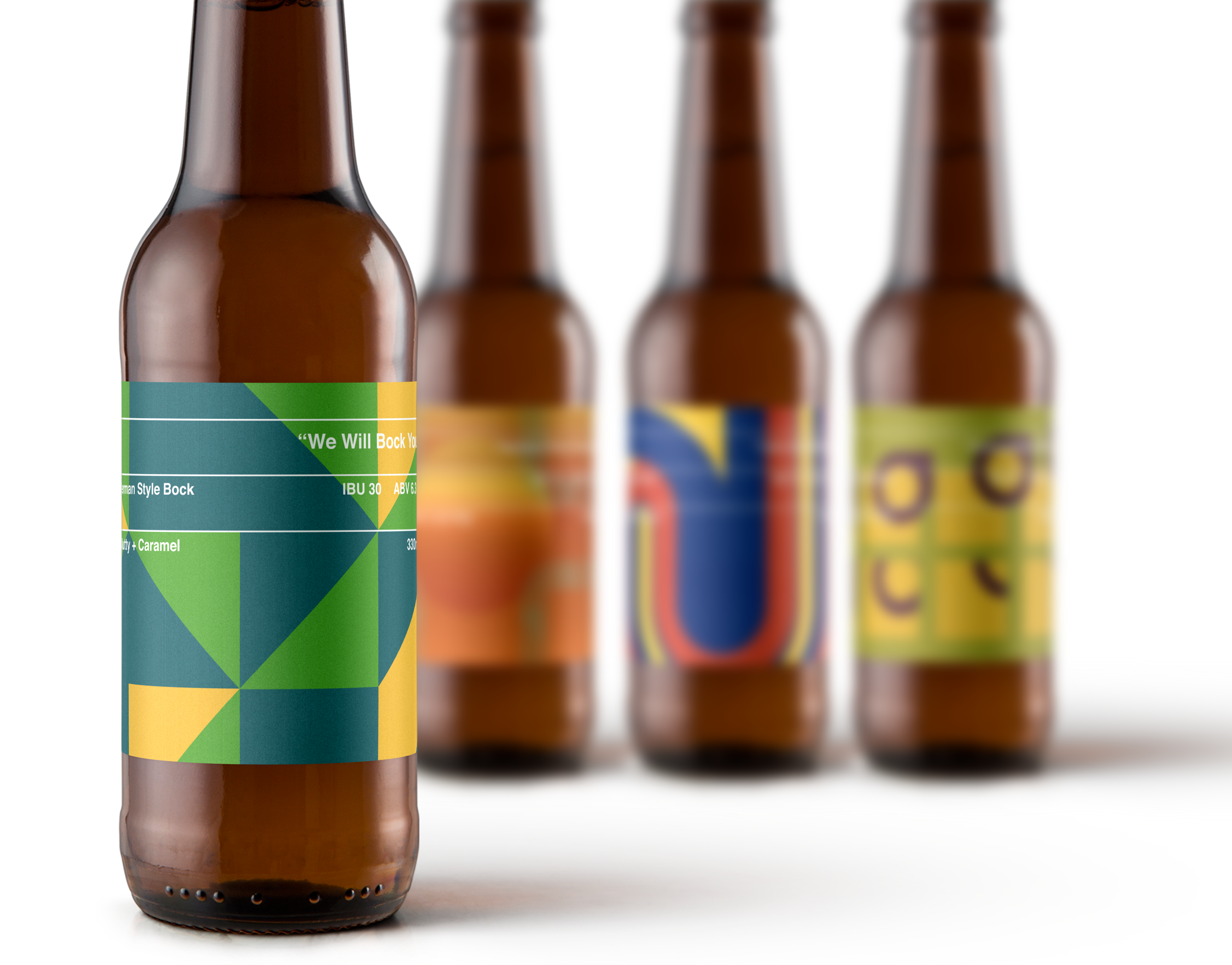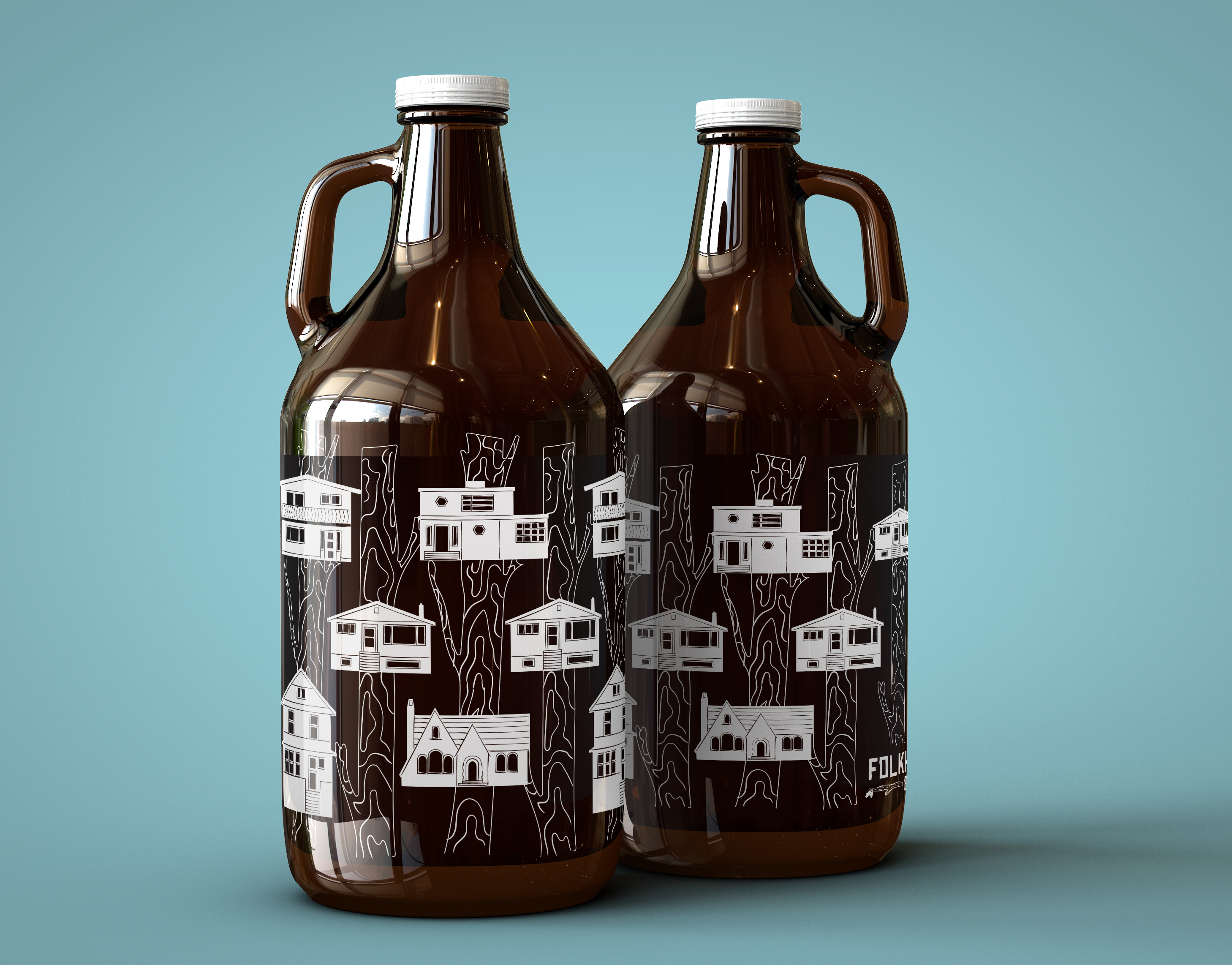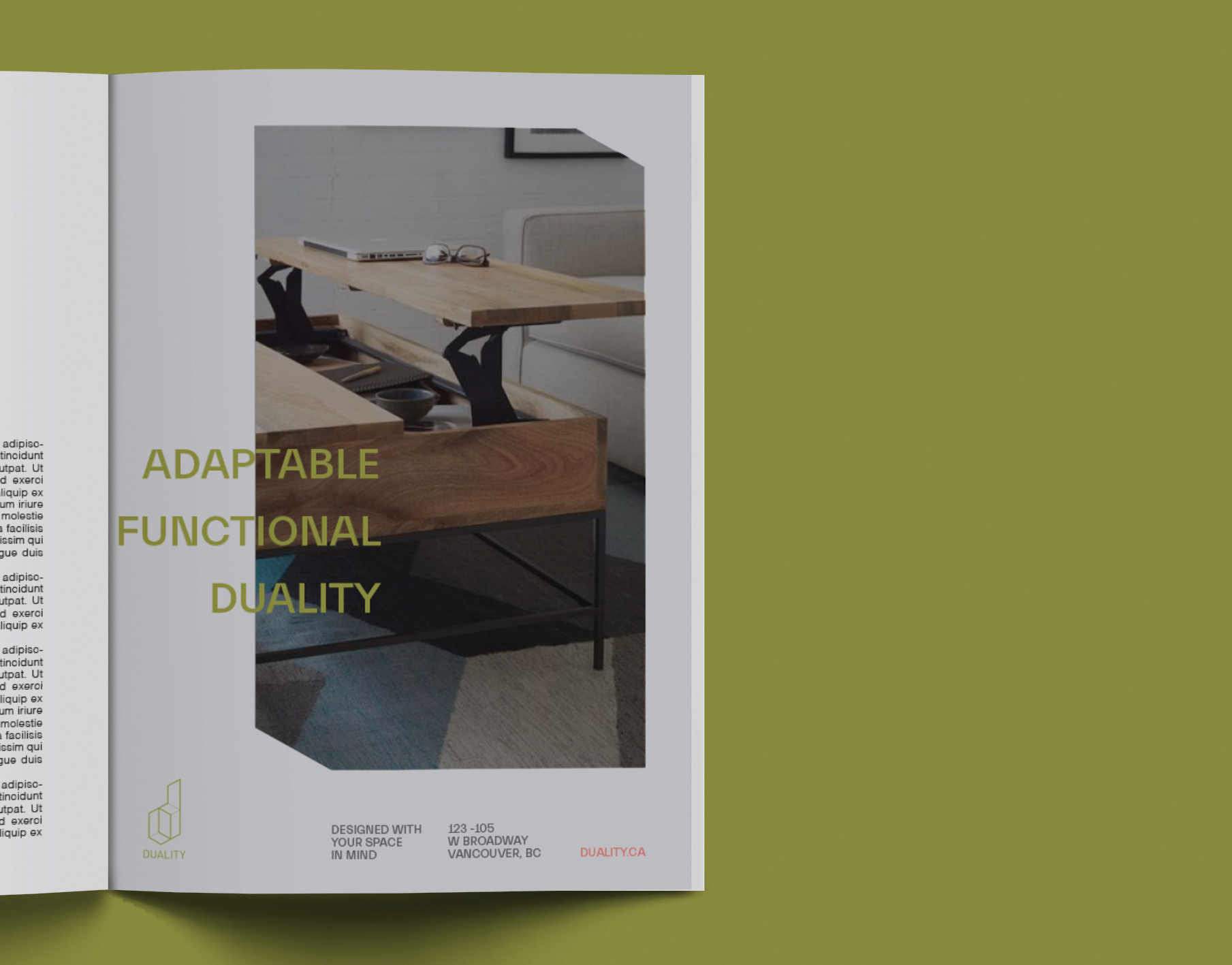CASE STUDY // MASC
Identity, Packaging, & Strategy
CHALLENGE
This was a semester long project completed in my final year of the Graphic Design for Marketing program. We were given the opportunity to address a hypothetical or existing marketing situation. I decided to focus on the lack of product diversity in the male self-care market by conceptualizing, MASC, a male cosmetic line.
MASC Cosmetic line was created out of necessity. It addresses the gaps in the male self-care market, which currently is only catered towards grooming and skincare regimens. Through my research I learned that there is stigma around embracing less traditional gender norms. Fear has built up in males who are insecure about not being seen as manly enough or enjoying something that historically is more feminine, such as 'personal care'. MASC Cosmetics has the opportunity to tackle the stigma around male self-care and become a leader in this under-serviced sector. While researching, I discovered that there is an expected expansion of $60.7 billion USD in the market by 2020, with millennial males being the primary consumers (Mintel). I refer to this group as 'Engaged Idealists'.
STRATEGY
Appealing to the target audience, 'Engaged Idealists', is crucial to the success of MASC. The strategy behind reaching to them is to create curiosity and intrigue of who and/or what MASC is. Establishing a bold and unapologetic tone of voice to convey the key brand messages is important as it offers reassurance and confidence. 'Engaged Idealists' are adventurous and willing to try new products. Creating a brand that excites and interests them, will allow for the development of a deep connection. Establishing brand loyalty early on will turn them into advocates for MASC. As 'Engaged Idealists' are influencers they have the ability to reach a wider range of millennial males, Creating a cult following for MASC will break down the stigma around males practicing self-care and change the perception of gender roles.
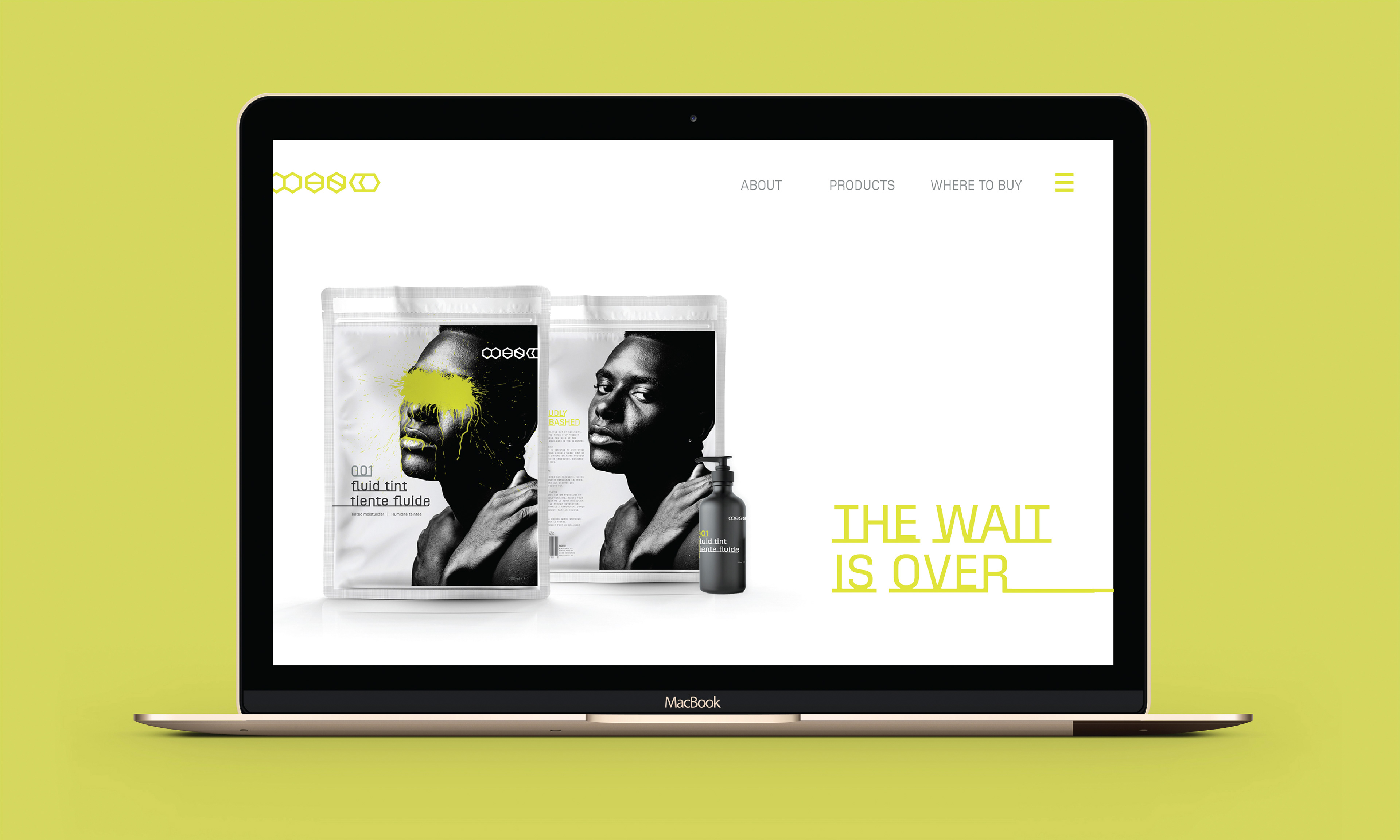
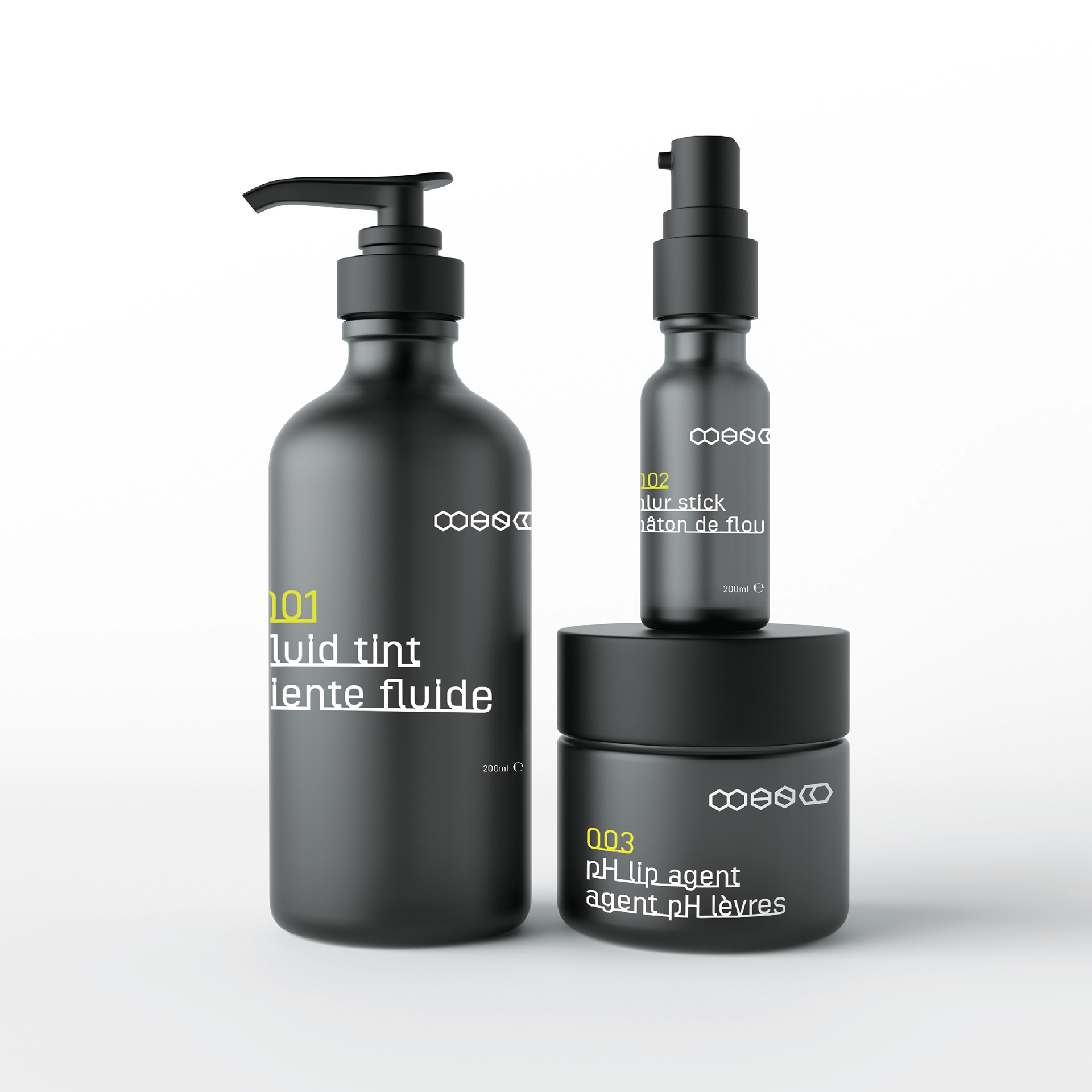
SOLUTION
Starting this project, I realized that the brand personality was of the utmost importance. If the 'Engaged Idealists' did not connect, trust, or like the feeling of the brand, then MASC was not going to succeed. Dealing with the stigma around male self-care, it was important to be assertive and direct. Building on the brand personality, key brand messages was the next step. Aligning the messaging with the overall personality of the brand was challenging. It needed to be exact. One misstep and it could turn off the target audience entirely from the idea of practicing self-care and using cosmetics. Factoring in all the research as well as the tone of voice of MASC, I then translated it into a visual. MASC'S identity was built around the idea of blurring masculinity and femininity by mixing bold geometric lines with complimenting soft edges. The naming of the product was the final step. This was a crucial part in the overall user experience of MASC. I discovered through my research, that the words 'makeup' or 'beauty' alienates the segment completely and results in almost an immediate turn off. Another consideration with naming, was the actual products. Most males do not have as deep of understanding of makeup and makeup terms as their female counterparts. Choosing names that were more literal and descriptive was key.
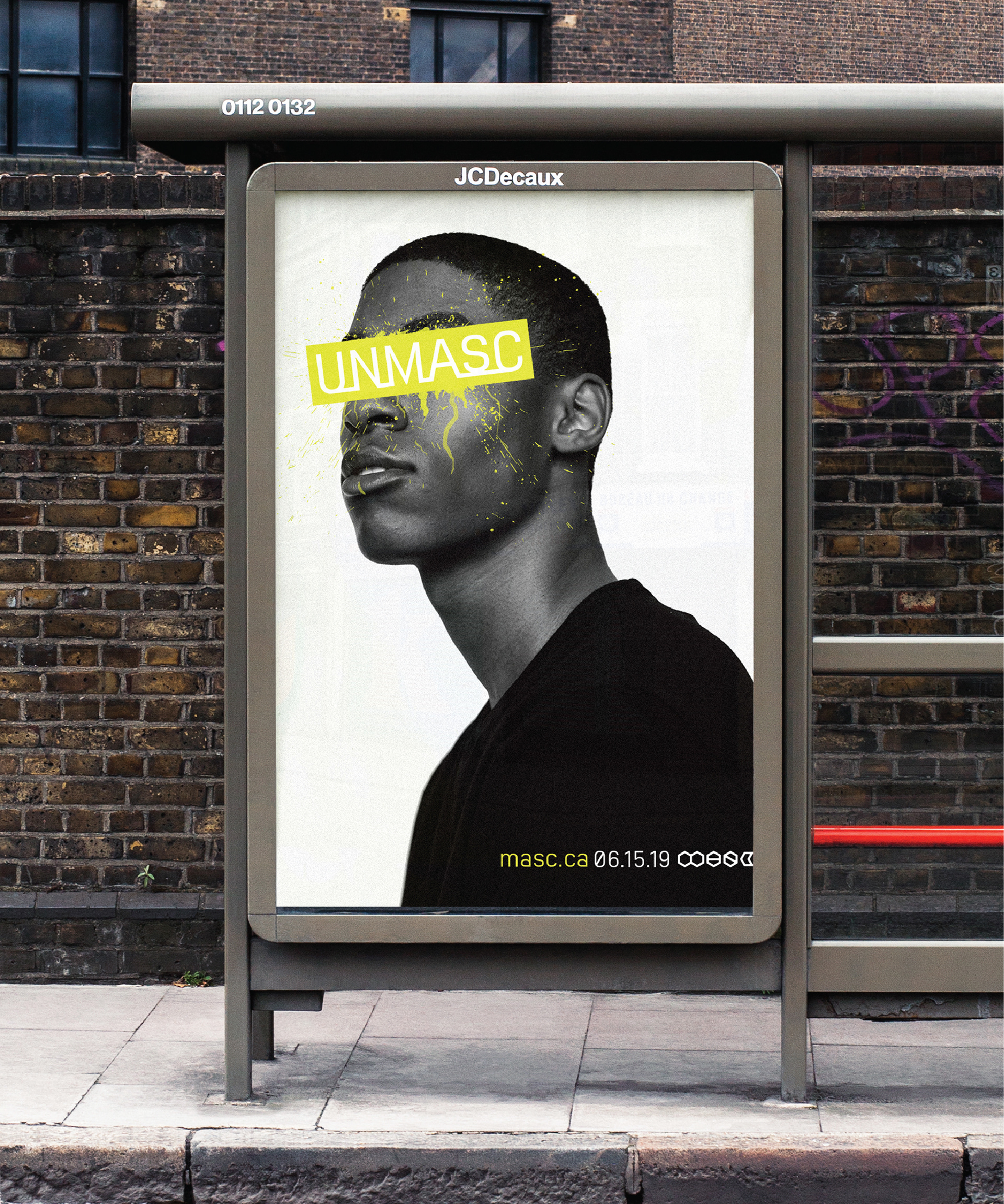
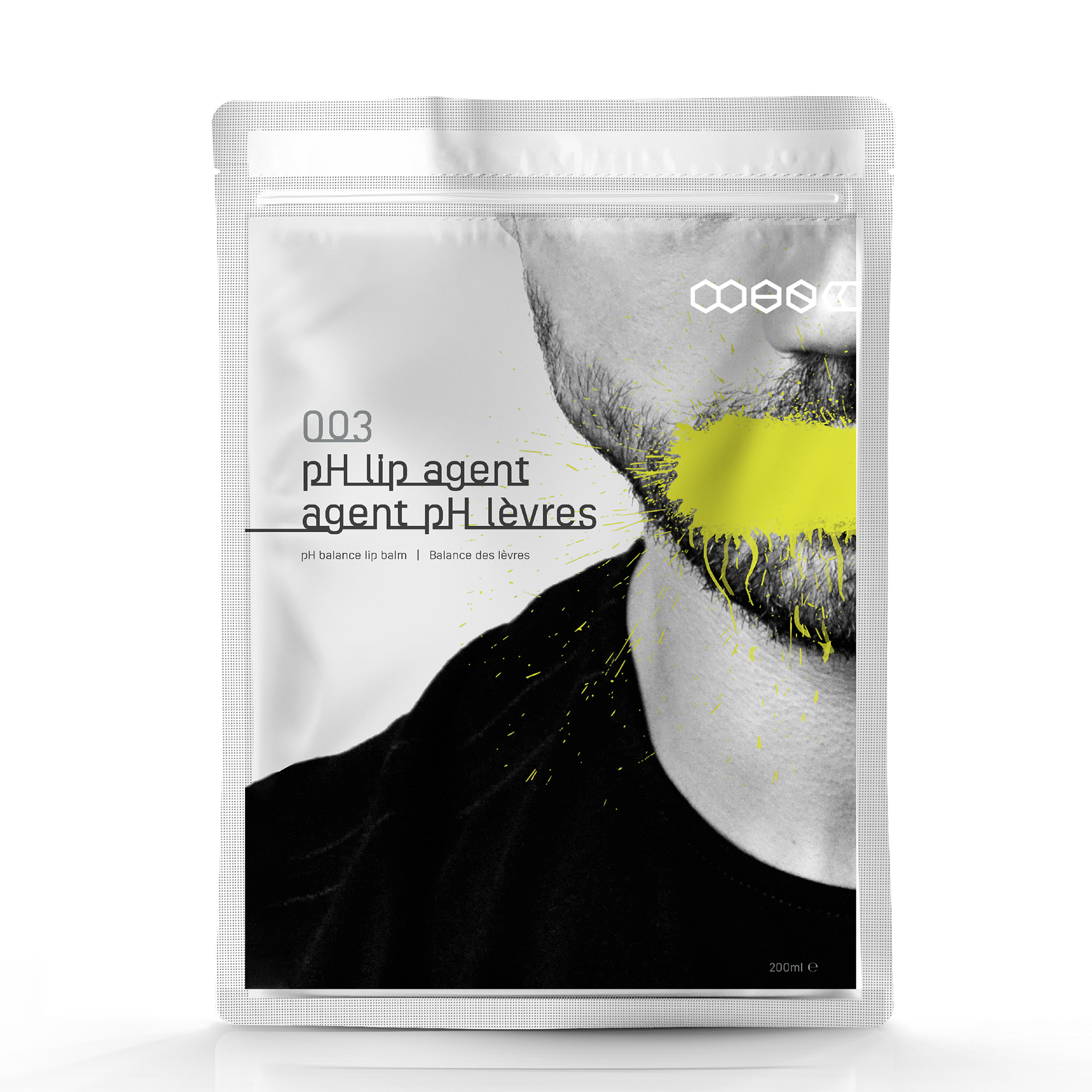
FINAL THOUGHTS
Initially when discussing with others about male cosmetics, most were immediately confused and almost instantaneously thought of drag makeup. This propelled me to find a solution. Showing men that there are varying levels of self-expression is important. Masculinity and femininity ideals are forced on to us at an early age, having brands like MASC is important to break down the stigma and allow for society to be more open minded.

